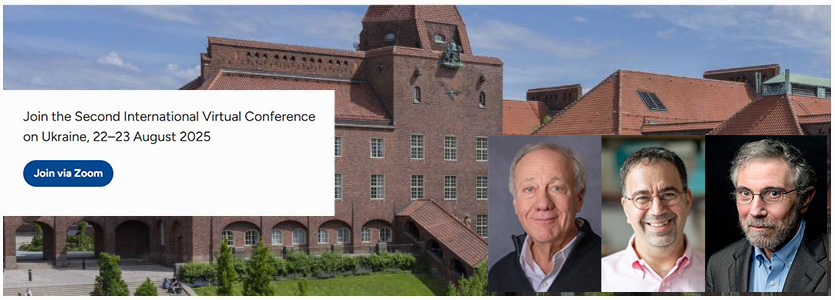Nobel laureates share insights on Ukraine’s future at KTH conference

What role does decentralization play in Ukraine’s resilience? How do global shifts in power shape the future of the war? And what responsibilities must Europe now take on? These were some of the pressing questions discussed when KTH hosted an international conference on Ukraine.
On August 22–23, KTH hosted a virtual international conference on Ukraine, bringing together 150 researchers from four continents, including three Nobel laureates. The program featured 54 presentations across 18 parallel sessions, six keynote addresses, and a panel discussion with scholars from nine different universities.
Many of the sessions highlighted the severe strains on Ukrainian civil society: half of all basic education now takes place online, more than 6,000 energy facilities have been destroyed, ten million people are internally displaced or have left the country, a significant brain drain has taken place, and the country’s innovative capacity has sharply declined.
Yet Nobel laureate Roger Myerson (USA) argued that Ukraine is drawing strength from a broad decentralization process, with increased local decision-making reducing its vulnerability. This also applies to the military, which—thanks in large part to this structure—has been able to resist the numerically and militarily superior Russian army.
Another Nobel laureate, Daron Acemoglu (USA), emphasized that the war in Ukraine should be understood against the backdrop of three interconnected developments: Russia’s historical decline as a great power, China’s rising influence, and an increasingly inward-looking United States showing less commitment to the international legal order.
Similar views were expressed by the third Nobel laureate, Paul Krugman (USA), who argued that it is crucial—for both Ukraine and the international community—that Europe assume responsibility and take over the role of defending the free world, a role once led by the United States.
KTH President Anders Söderholm provided several concrete examples of how the university is contributing to the reconstruction of war-torn Ukraine through initiatives in both education and research.
If you have any questions about the conference, please contact Hans Löof .
